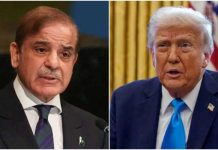| Finance Minister assures IMF of curtailing the subsidies | Claims no fear of Pakistan going on default over foreign debt | Business Tax Amnesty scheme also to be abolished | IMF to extend stalled bailout plan by up to one year
From Sandra Johnson
WASHINGTON: Finance Minister Miftah Ismail agreed with the International Monetary Fund (IMF) recommendations to reduce fuel subsidies and end a business tax amnesty scheme, pledging to pursue structural reforms to boost a crisis-wracked economy.
The IMF in 2019 approved a $6 billion loan over three years for Pakistan but disbursement has been slowed by concerns about the pace of reforms.
Miftah Ismail, who took office this month after the previous government lost a no-confidence vote, said he had “good discussions” with the IMF on a visit during the Washington-based lender’s annual spring meetings.
“They’ve talked about removing the subsidy on fuel. I agree with them,”
Miftah, himself a former IMF economist, said at the Atlantic Council.
“We can’t afford to do the subsidies that we’re doing. So we’re going to have to curtail this,” he said.
He said that former prime minister Imran Khan, seeking to avoid ouster, set a “trap” for his successors through heavy subsidies on fuel and electricity, as well as a tax amnesty scheme for businesses – measures that derailed a disbursement from the IMF loan. “He gave an amnesty to businesses for setting up factories so that they don’t have to pay taxes, or even if they evaded taxes that’s ok,” Ismail told reporters at an event organised by Pakistan’s embassy. But Miftah added that some targeted subsidies should remain for Pakistan’s poorest amid sky-high global prices.
The country’s new Prime Minister Shehbaz Sharif has vowed to jumpstart a moribund economy, certain to be a major issue in elections due next year.
Pakistan has repeatedly sought international support and suffers from a chronically weak tax base.
Ismail said that Pakistan, the world’s fifth most-populous nation, needed to move to a new economic model by removing obstacles and promoting exports to the world.
“We have such an elite-benefitting country that almost every subsidy that you can speak of actually goes to the richest people,” he said.
Miftah said his immediate goal was reining in double-digit inflation – a target complicated by lifting fuel subsidies – and kickstarting job creation.
He denied Pakistan was in danger of defaulting on its debts, with foreign reserves currently standing at $10 billion, and much of its bilateral debt held with friendly countries China, Saudi Arabia and the UAE.
Shehbaz has little over a year before he has to call a general election, leaving observers wondering whether ousting former premier Imran Khan will backfire, since his government inherited an economic crisis that will take time to overcome.
But Miftah said there was “never a wrong time to do the right thing.”
“If what we claim is true, and we are actually more competent, then we should be able to make a difference in a few months. And if we don’t, we’ll be thrown out by the people, which is fine.”
Earlier this week, Miftah lambasted the Pakistan Tehreek-e-Insaf (PTI) for derailing the IMF programme as he expressed the government’s resolve to get the programme back on track to revive the ruined economy.
The minister said that the incumbent government would do whatever was necessary to restore the programme. He said that the government could reduce public sector development spending with other necessary budgetary discipline arrangements.
“We will restore the programme. If the government has to tighten its belt, it will do so,” he said adding that no extra burden would be put on the people.
Criticising the former PM, Miftah said the IMF programme was derailed by Imran Khan and now it was massively off-track. “Now we will have to convince the IMF,” he added. The finance secretary briefed the federal cabinet on the IMF programme and as per him it was “5,300 per cent off-track”, the minister added.
According to reports, Pakistan and IMF have agreed, in principle, to extend the stalled bailout programme by up to one year and increase the loan size to $8 billion, giving markets the much-needed stability and a breathing space to the new government.
The understanding has been reached between Finance Minister Dr Miftah Ismail and IMF Deputy Managing Director Antoinette Sayeh in Washington, agencies reported, adding, subject to the final modalities, the IMF has agreed that the programme will be extended by another nine months to one year as against the original end-period of September 2022.
The size of the loan would be increased from the existing $6 billion to $8 billion – a net addition of $2 billion. The IMF is expected to issue a statement on Monday (today) in this regard.
The previous PTI-led government and the IMF had signed a 39-month Extended Fund Facility (July 2019 to September 2022) with a total value of $6 billion. However, the previous government failed to fulfil its commitments and the programme remained stalled for most of the time as $3 billion remained undisbursed.



